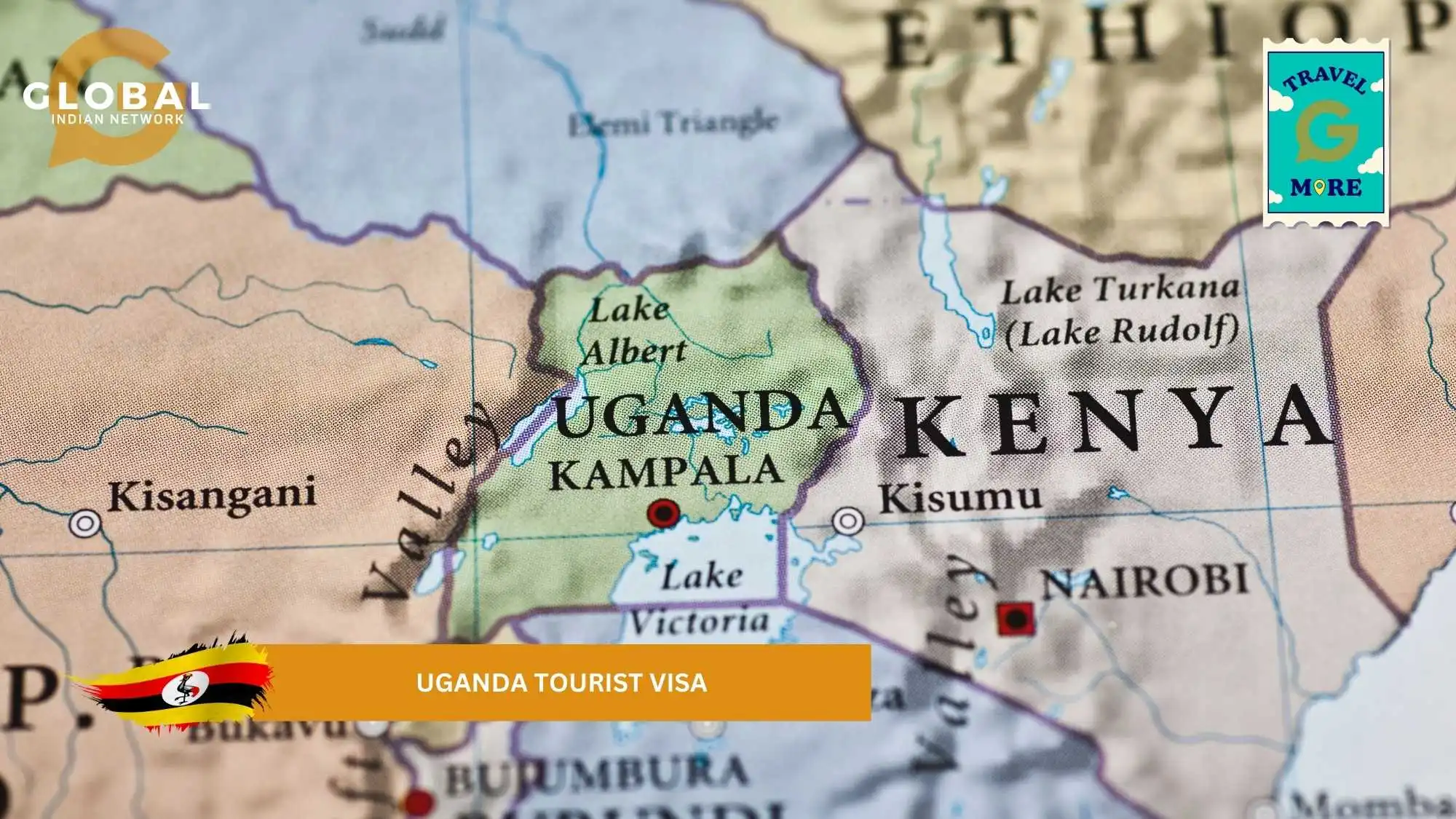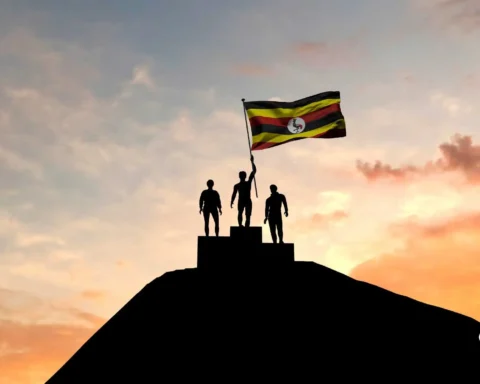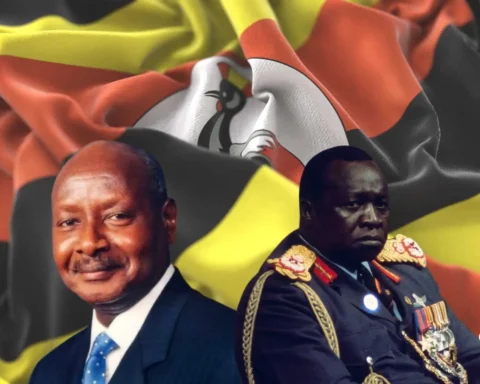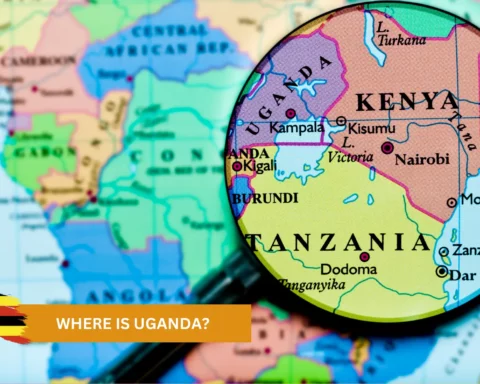Planning a visit to the mesmerizing country of Uganda is an exciting adventure awaiting travellers who wish to explore its diverse landscapes, vibrant culture, and abundant wildlife. To embark on this journey, obtaining a Uganda tourist visa is a crucial step.
Whether you’re drawn to the gorillas of Bwindi, the sprawling savannahs of the national parks, or the welcoming communities, this guide will walk you through the tourist visa application process, ensuring that you’re well-prepared for an unforgettable Ugandan experience.
Table of Contents
Ugandan Embassy
The Ugandan embassy, like any diplomatic mission, plays a crucial role in facilitating the visa application process for tourists. Located in various countries worldwide, these embassies serve as official representatives of Uganda in foreign nations. They provide a range of consular services, including processing tourist visa applications, assisting with documentation, and offering guidance on visa requirements and procedures.
Tourists can approach the Ugandan embassy in their home country to initiate the visa application process by attaching relevant documents. Embassy officials can provide the necessary online application forms, explain the specific requirements for tourist visas, and assist with any inquiries or concerns related to the visa application. Additionally, the embassy may liaise with the Ugandan authorities to facilitate the processing of visa applications and ensure that travellers have accurate and up-to-date information regarding their visa status.
Types of Uganda Tourist Visa
To visit Uganda as a tourist, you can apply for different types of visas, depending on your travel plans and the duration of your stay. The primary visa types for tourists in Uganda include:
- Tourist Visa (Single Entry Visa – Category “T”): This is the most common visa type for tourists and allows international travellers to visit Uganda for tourism, family visits, and leisure purposes. A single visa is usually issued for single or multiple entries and is valid for a specific duration, typically ranging from 30 days to 90 days.
- East African Tourist Visa: If you plan to visit multiple countries in East Africa, including Uganda, Kenya, and Rwanda, you can apply for the East African Visa. This diplomatic visa allows you to travel between these countries without the need for separate visas, making it convenient for tourists exploring the region.
- Transit e-Visa: If you are transiting through Uganda to a different destination and will not leave the airport, you can apply for a transit visa, which is typically valid for a short duration, such as 1 to 2 days.
- Multiple-Entry Visa: If you intend to visit Uganda multiple times within a specified period, you can apply for a multiple-entry visa by providing additional documents. This type of visa allows for several entries into the country during its validity period, which can range from six months to one year or more.
- Visa on Arrival: Some nationalities are eligible to obtain a tourist visa upon arrival at Entebbe International Airport or specific land border crossings. However, it’s advisable to check the latest visa policies, sufficient funds, and eligibility criteria before travelling, as these regulations can change.
- Business Visa: A business visa is a type of visa that allows individuals to enter Uganda for business-related purposes, such as meetings, conferences, negotiations, and investment activities. They are typically issued for single or multiple entries and are subject to specific additional requirements, including invitation letters from Ugandan host organizations and proof of the business nature of the visit.
It’s essential to research and select the most appropriate visa type based on your travel plans, including the duration and purpose of your visit to Uganda. Additionally, ensure that you meet all visa requirements, including providing necessary documentation and paying the applicable fees, to facilitate a smooth entry into the country.
Uganda E-Visa
The Uganda e-visa application is an electronic visa system that allows travellers to apply for and obtain their visas online before their trip to Uganda. This convenient and efficient process simplifies visa application, approval, and issuance, making it easier for tourists to explore this diverse East African nation.
To obtain a Ugandan e-visa or tourist e-visa, travellers can visit the official Uganda Electronic Visa/Permit Application System website and complete the application process. The Uganda E-visa requirements include your personal information, travel authorization, proof of accommodation, and a passport with six months validity information, along with a recent passport-sized photograph, letter of invitation, and a copy of your passport bio-data page. After submitting the application and paying the required visa fees online through any method of payment, credit card or debit card, the processing time typically takes a few business days. Once approved, travellers receive their online visa electronically via email, which they can print and present upon arrival in Uganda, streamlining the immigration process with immigration authorities.
The Uganda visa offers several advantages, including the ability to apply from anywhere with an internet connection, check the immigration status of the application online, and receive valid visa approval electronically. This user-friendly system enhances the overall travel experience and encourages more visitors to discover Uganda’s breathtaking landscapes, vibrant culture, and warm hospitality.
Passport
A passport plays a pivotal role in the Uganda tourist visa application process as it is the primary identification document required for entry into the country. Its importance cannot be overstated as it serves as proof of identity, nationality, and legal authorization to travel to Uganda.
First and foremost, a valid passport establishes the traveller’s identity, ensuring that the applicant is who they claim to be. It confirms their nationality, which is a key factor in determining eligibility for specific visa categories, including tourist visas. Furthermore, the passport provides critical information such as the traveller’s photograph and personal details, aiding authorities in processing and verifying the visa application accurately.
Perhaps most significantly, the passport acts as a legal travel document, indicating that the traveller is authorized to cross international borders and enter Uganda. Without a valid passport, obtaining a tourist visa and subsequently entering the country becomes impossible. Therefore, ensuring your passport is up to date and valid for at least six months beyond your intended departure date is an essential prerequisite for a smooth and successful Uganda tourist visa application.
Online Application
The online application process for a Uganda tourist visa has streamlined the way travellers can obtain their entry permits to this beautiful East African nation. With the convenience of the e-visa system, applying for a tourist visa to Uganda has become more accessible than ever before.
To begin the process, applicants can visit the official Uganda Electronic Visa/Permit Application System website or the immigration portal and fill out the required forms, providing personal information, travel details, and passport information. They will also need to upload a recent passport-sized photograph and a copy of their passport bio-data page. Once the online payment is done and the visa application form is submitted, the processing time usually takes a few working days. If approved, an approval letter will be sent to your current email address.
The online application for a Uganda tourist visa offers several advantages, including the ability to apply from anywhere with an internet connection, check the status of your application online, and receive your visa approval electronically via email. This streamlined visa online process not only simplifies travel planning but also encourages more visitors to explore the wonders of Uganda, from its lush national parks to its vibrant culture and warm hospitality.
Cover letter
A well-crafted cover letter explaining the reason for visiting Uganda is a valuable component of a tourist visa application. It serves as a personal and compelling narrative that enhances the application’s overall credibility and can significantly influence the visa approval process.
Firstly, the cover letter provides an opportunity for the applicant to express their genuine intentions and enthusiasm for visiting Uganda as a tourist. It allows them to articulate the specific purpose of their trip, whether it’s to explore the country’s rich cultural heritage, witness its diverse wildlife, or engage in community-based tourism.
Secondly, the cover letter can help establish the applicant’s ties to their home country. Explaining their professional and personal commitments, it demonstrates their intention to return home after their trip, alleviating concerns of overstaying or unauthorized employment in Uganda.
Moreover, a well-drafted cover letter can clarify any potential ambiguities in the visa application. It can address questions or discrepancies regarding the travel itinerary, accommodation arrangements, or financial stability, thereby providing additional assurance to the visa authorities.
In summary, a cover letter for a Uganda tourist visa application serves as a persuasive and personalized document that not only explains the purpose of the visit but also enhances the applicant’s credibility and helps ensure a smoother and more successful visa approval process.
Yellow Fever Vaccination Certificate
Obtaining a yellow fever vaccination certificate, formally known as the International Certificate of Vaccination or Prophylaxis (ICVP), is a straightforward process:
- Consult a Healthcare Provider: Schedule an appointment with a healthcare provider, preferably one specializing in travel medicine or tropical diseases. Inform them about your upcoming travel plans to regions where yellow fever is endemic or required for entry.
- Assessment and Vaccination: The healthcare provider will assess your medical history and any contraindications to the yellow fever vaccine. If deemed suitable, you’ll receive the yellow fever vaccine via a single injection.
- Receive the Certificate: After vaccination, you’ll be issued the ICVP or yellow card, which serves as proof of vaccination. This card includes essential information such as your name, vaccination details, and the signature and stamp of the administering healthcare provider.
- Safekeeping: Keep your yellow card in a secure place alongside your passport. It is a valuable document that may be required for entry into countries with yellow fever transmission risks and also to obtain medical treatment.
- Verify Entry Requirements: Before travelling, confirm the specific entry requirements of your destination country, as regulations can vary. Ensure that you meet all health-related criteria, including having a valid Yellow Fever Certificate if necessary.
- Plan Ahead: Yellow fever vaccination certificates are typically valid for ten years, so plan your vaccination well in advance of your trip to meet both health and entry requirements.
Obtaining a yellow fever vaccination card or certificate is not only a vital measure to protect your health from this potentially severe disease but also a means to comply with international travel regulations. By following these steps and consulting with a healthcare provider, you can ensure a smooth and safe journey to regions where yellow fever is a concern.
Tourist Guidelines
When visiting Uganda with a tourist visa, it’s important to follow specific guidelines to ensure a safe and enjoyable trip while respecting local laws and customs. Here are some key tourist guidelines to keep in mind:
- Respect Local Laws and Regulations: Familiarize yourself with Ugandan laws and customs. Observe local regulations related to photography, dress code, and behaviour, especially in religious or cultural sites.
- Gorilla Trekking Rules: If you plan to engage in gorilla trekking in national parks like Bwindi, follow the park’s guidelines and instructions provided by guides and rangers. Maintain a safe distance from gorillas, minimize noise, and avoid direct eye contact.
- Wildlife and Nature: While enjoying Uganda’s abundant wildlife and natural beauty, remember that it’s essential to maintain a respectful distance from animals in the wild. Never feed or approach wild animals, and always follow the instructions of park rangers and guides.
- Cultural Sensitivity: Show respect for local cultures and traditions. Seek permission before taking photographs of people, especially in rural or tribal communities avoid public gatherings. Dress modestly in certain areas and be mindful of local sensitivities.
- Health Precautions: Be aware of health precautions and medical facilities, including vaccinations and malaria prevention. Carry necessary medications and consult a healthcare professional before travelling to ensure you are adequately prepared.
- Travel Permits: If you plan to visit protected areas or national parks, obtain the required permits in advance and follow park regulations.
- Safety: Exercise general safety precautions. Avoid displaying valuable items in public, keep your belongings secure, and be cautious when withdrawing money from ATMs.
- Environmental Responsibility: Practice responsible tourism by minimizing your environmental impact. Dispose of litter properly and use eco-friendly practices when possible.
- Local Interaction: Engage with local communities respectfully. Support local businesses and crafts, but be cautious of exploitative practices or haggling over prices.
- Emergency Contacts: Keep a list of emergency contacts, including the nearest embassy or consulate, local emergency services, hotel reservations, and contacts for tour operators or accommodations.
By following these tourist guidelines, you can have a safe, enriching, and culturally respectful experience while exploring the diverse and welcoming beautiful country of Uganda.
Conclusion
This blog has offered a comprehensive overview of everything you need to know before applying for a Uganda tourist visa. From understanding the different visa types and the online application process to crucial guidelines for a safe and respectful visit, we’ve covered it all. By following these insights, travellers can embark on their Ugandan adventure fully prepared, ensuring a seamless and memorable journey in this captivating East African nation. Uganda’s natural beauty, wildlife, and warm hospitality await, and with the right knowledge, your visit promises to be a truly transformative experience.
FAQs
Where is the immigration office in Uganda?
The main immigration office in Uganda is located in the capital city, Kampala, specifically at the Directorate of Citizenship and Immigration Control, Plot 75 Jinja Road. This is the primary government office responsible for immigration and visa-related matters in the country.
Who are the immigration officials?
Immigration officials in Uganda are government employees responsible for overseeing immigration and visa-related matters, including the issuance of visas, work permits, and border control. They work under the Directorate of Citizenship and Immigration Control, which operates within the Ministry of Internal Affairs and is responsible for enforcing immigration laws and regulations.
What are the places with visa exemptions who can enter Uganda?
Uganda has visa exemptions for nationals of several countries. These include citizens of countries like Kenya, Rwanda, South Sudan, Tanzania, Solomon Islands, and others within the East African Community (EAC) to enter Uganda without a visa for varying durations, usually for tourism and business purposes.
Which countries can Indians visit without a visa?
Some countries include Nepal, Bhutan, Maldives, Mauritius, and Seychelles.










[…] power and tyranny, leaving a dark chapter in modern African history that continues to shape Uganda's […]
Very interesting! I wanted to ce to Uganda but only problem I have is they’re asking of tourists guide with I don’t understand or I don’t know what they mean , to obtain reservations tourist guide from authorized companies of written a letter to explain where you wanted to visited or what? Pls can you enlighten me how to obtain it or what to do , thanks